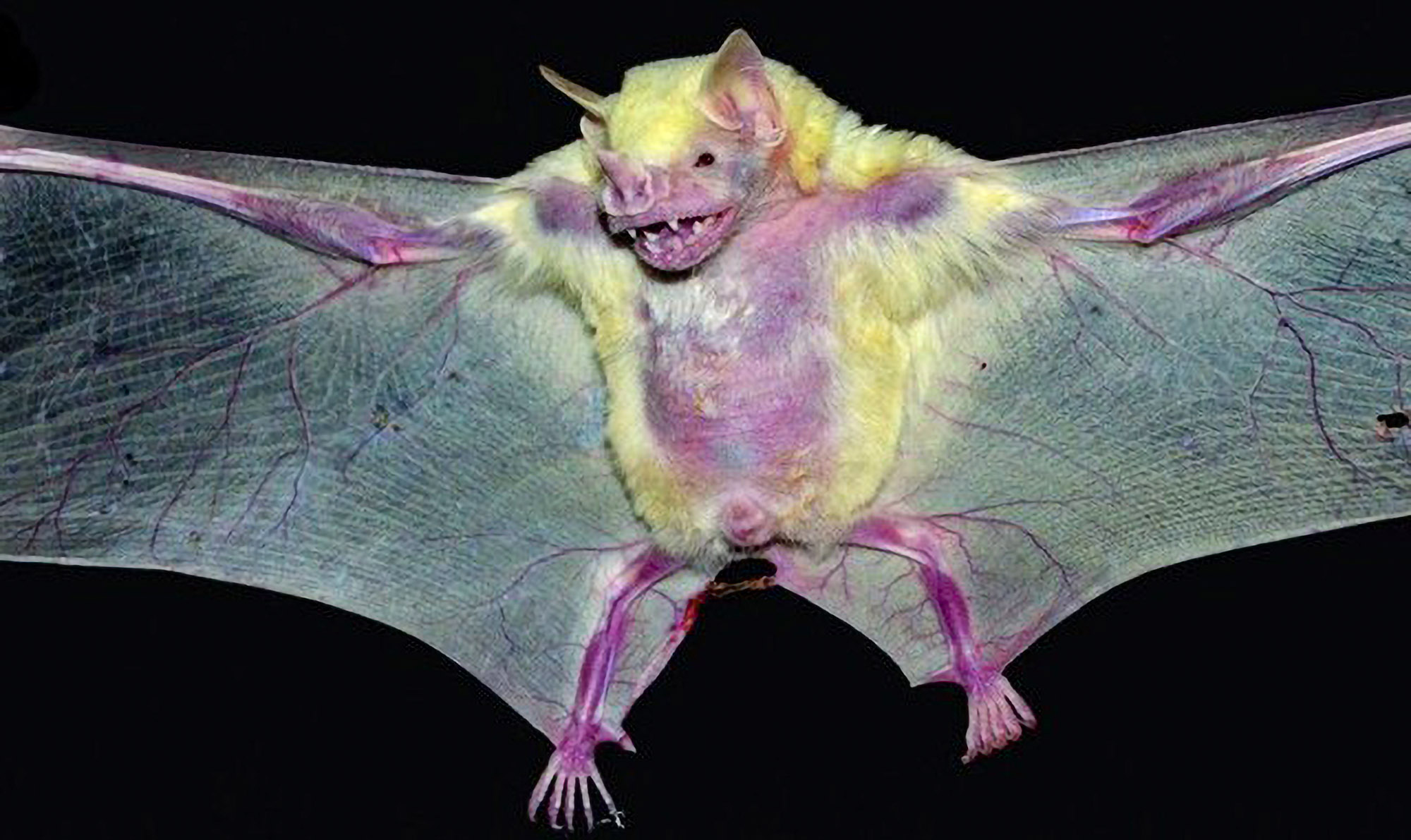This picture shows the extremely rare pregnant albino bat that astounded Brazilian biologists.
The specimen is the only pregnant flat-faced fruit-eating bat (Artibeus planirostris) that has ever been photographed in the wild.
Only one such albino specimen from the same species had previously been sighted. The earlier specimen was another female but was not pregnant.
The latest specimen was spotted on the Fazenda Tamandua (Tamandua Farm) in the municipality of Santa Teresinha in the north-eastern Brazilian state of Paraiba.
It was collected on 19th October 2012 and deposited in the Collection of Mammals of the Federal University of Pernambuco (the state to the south of Paraiba).
The sighting only hit local headlines this month following the publication of the study ‘Albinism in Artibeus planirostris (Chiroptera, Phyllostomidae) in the Caatinga biome and updated list of albino bats in Brazil’ in September this year.
According to reports, albinism has only been reported in around 60 species of bat.
In Brazil, the condition has only been observed in nine species.
The latest sighting is significant, as it shows that the bat’s albinism did not hinder it from reaching adulthood or reproducing.
The flat-faced fruit-eating bat is widespread in forested environments through much of northern and central South America.
Adults measure 3.1 to 4.3 inches in total length and weigh 1.4 to 2.4 ounces.
Non-albino individuals are covered in a brownish-grey fur, which becomes grey on the underparts, and have faint whitish stripes on the face.
Specimens have a broad skull with a short snout, and triangular ears with rounded tips and a small tragus.
They are nocturnal and, as their name suggests, feed almost exclusively on fruit.
Complete albinism, a congenital deficiency in pigmentation, is a rare phenomenon in bats and can reduce their survivability.
The condition is observed in animals, plants, and people, and its infrequence has led to certain individuals becoming celebrities, like Claude the albino alligator from Florida, who is kept at the California Academy of Sciences, or Snowflake the albino gorilla from Spanish (now Equatorial) Guinea, who was a much loved resident of the Barcelona Zoo.
To find out more about the author, editor or agency that supplied this story – please click below.
Story By: William McGee, Sub-Editor: Joseph Golder, Agency: Newsflash
The Ananova page is created by and dedicated to professional, independent freelance journalists. It is a place for us to showcase our work. When our news is sold to our media partners, we will include the link here.




